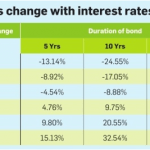Top Skills for Bookkeepers in 2024 +Most Underrated Skills

However, as a bookkeeper, you how to determine customer credit terms must note down everything and try to remember details related to your evidence. Every bit of information matters when it comes down to putting together a spread out puzzle. You will be receiving plenty of data that you will have to organize in the short-term or long-term. People will be coming to you with multiple questions per day, as they consider you to be some sort of a living encyclopedia of information.
How to test bookkeepers’ organizational skills
It is indispensable to have a knowledge of accounting and to understand how to use accounting software systems. While bookkeepers can sit for the CB exam sections in any order, AIPB recommends taking part one before scheduling part two. To maintain certification, you need to earn at least 60 continuing education credits every three years. Integrity and trustworthiness are important qualities to cultivate as a bookkeeper.
Bookkeeper Skills by Experience Level
Consider a bachelor’s degree in accounting, business administration, or finance. Simply put, bookkeepers are responsible for all financial activity and oversight of a business. They record and organize financial statements, ensure compliance with important tax rules, and facilitate all ingoing and outgoing payments on specific business accounts. To be an accountant, you generally need education requirements like a bachelor’s degree in accounting. If you want to be a great asset to the company you work for, you need to think long-term so that you can see the bigger picture. If you are prone to making impulsive and uninformed decisions, then this role may not be for you.
- Becoming an accountant usually requires more training and education than bookkeeping and can be a good next step in your financial career.
- They may have a job board or professional network that could lead to opportunities.
- However, aside from showing your commitment to your job, it is also crucial that you show your clients that you have their business interests at heart.
- A Bookkeeper is responsible for recording and maintaining a business’ financial transactions, such as purchases, expenses, sales revenue, invoices, and payments.
- Learners are advised to conduct additional research to ensure that courses and other credentials pursued meet their personal, professional, and financial goals.
Can bookkeepers work remotely?
On the other hand, accounting is the measurement, processing, and distribution of financial and non-financial data concerning enterprises and corporations. Furthermore, accounting measures the outcomes of an organization’s economic actions and communicates this information to management, investors, creditors, and regulators. A bookkeeper can expect to earn a salary in the range of $30,000-$60,000 a year in the US.

In the world of finance, problems and issues will undoubtedly be knocking on your door every once in a while. Hence, you need to possess the calmness to first, spot those issues long before others, and then solve them. Take your learning and productivity to the next level with our Premium Templates. The bookkeeper is generally responsible for overseeing the first six steps of the Accounting Cycle, while the last two are typically taken care of by why is prepaid insurance a short term asset an accountant. While there is a general overlap between the two professions, there are a few distinctions that are later discussed in this article. Coursera’s editorial team is comprised of highly experienced professional editors, writers, and fact…
Expertise in Bookkeeping principles and practices enhances the credibility of and instils confidence in their ability to manage financial matters. The wholesale trade industry offered a median annual wage of $46,220, while retail trade stood at the lower end with $39,880. Every one of your abilities would be useless if you can’t divide your tasks properly when the timing is right.
A disciplined approach to Bookkeeping instils confidence in clients and colleagues, showcasing the Bookkeeper’s commitment to how do i calculate depreciation using the sum of the years’ digits maintaining high standards. Bookkeepers often find themselves in situations where reconciliation issues or discrepancies arise. The ability to identify problems, analyse their root causes, and implement effective solutions is a hallmark of a skilled Bookkeeper. Problem-solving skills are crucial to maintaining the integrity of financial records and resolving issues promptly. A Bookkeeper deals with vast amounts of data, invoices, and receipts on a daily basis. A well-organised Bookkeeper can swiftly navigate through data, retrieve information, and maintain a systematic order in financial records.
Regardless of whether you work full-time or part-time, your clients need to feel that you are passionate about working with them. Make sure that you give all of your clients the same level of commitment and never treat them poorly just because they gave you a low paycheck. As a bookkeeper, you need to be detail-oriented, so you can ensure that all data is accurate and well-accounted for. You will be overseeing several financial documents across multiple platforms, so it is vital that you pay close attention to your work so that you won’t miss any valuable information. Being keen on details can also help prevent integrity issues related to your position.
Being able to adapt quickly to technology can significantly benefit you in the long run. If you are committed to pursuing this profession, you must be comfortable with mathematical equations. As long as you are confident enough to handle numerical concepts and are quick to adjust to unexpected changes, you will perform well with your tasks. Bookkeeping skills are important because they facilitate financial control and compliance, enable effective auditing, and assist budget preparation, analysis, and management. These skills support overall business planning and can enhance an organization’s reputation by ensuring accuracy. Candidates who excel in time management demonstrate strong organizational skills, an ability to set realistic goals, and discipline to adhere to schedules.







Add comment